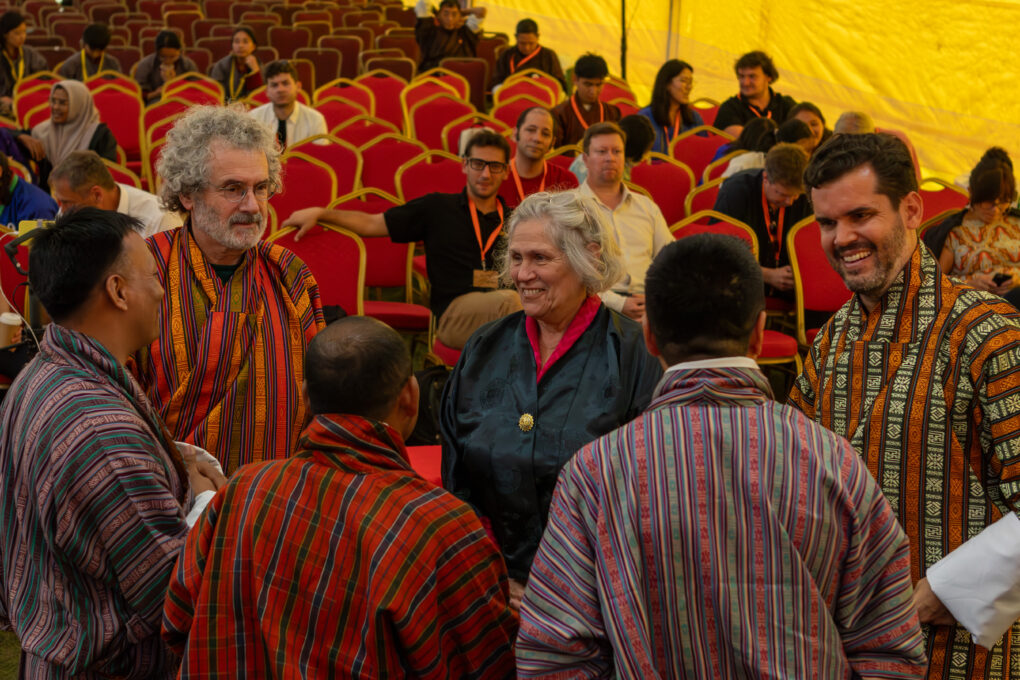
Celebrating Global Innovation: The Fab City Awards 2024 Winners
Each year, the Fab City Awards honor initiatives and projects that develop creative solutions to the most pressing urban and rural challenges.
As we celebrate a decade of impact this year, we recognize outstanding projects from 12 countries across 5 continents in the second edition of the Fab City Awards.
This year, we saw meaningful projects addressing issues in agriculture, from food security to the revival of traditional culture. Other projects are working to preserve ecosystems, provide sustainable alternatives for synthetic dyes, combat hunger and food waste, and leverage emerging technologies to experiment with smart and sustainable city concepts.
Despite global challenges, these projects showcase the inspiring efforts of communities to foster a more accessible, equitable, and sustainable world for everyone.
In total, we have four winners: the project that presents the best holistic approach to all categories and one winner for each of the three Fab City Awards 2024 categories: Communities, Ecosystems and Technologies.
Best holistic project
Program name: SAMPA+RURAL
Organization: Municipal Department of Economic Development and Labor – City of São Paulo
Location: São Paulo, Brazil
Sampa+Rural is a multi-stakeholder program in São Paulo aimed at strengthening various forms of agriculture in the city, thereby serving as a model for sustainable urban food systems. It facilitates connections between agricultural sites, farmers, and other stakeholders, particularly in vulnerable communities, ultimately enhancing productivity through agricultural education and technologies.

Sampa+Rural aims to strengthen various forms of agriculture in São Paulo, enhance productivity through agricultural education and technologies, promote visibility for agricultural sites and related initiatives, and empower women farmers within the municipality.
- 2 designed and deployed open source platforms: Sampa+Rural and SisRural
- 2,000 agricultural sites received visibility.
- 32% of the 252 agricultural sites served by the program are managed by women.
- 850 farmers and vulnerable individuals receive stipends and training.
The program connects agricultural sites, farmers, and stakeholders, empowers women farmers by supporting exclusively female initiatives, and educates school students through the “Rolê Ecológico” pilot project. The program also partners with the Municipal Department of Greenery and the Environment and the Department of Education.
Best Community project
Program name: Tarum in Action
Organization: Fab City Indonesia
Location: Java Indonesia
The project harnesses the natural resources of the Tarum Areuy tree (Marsdenia tinctoria R.Br.) to produce sustainable blue dye and shampoo. It aims to create eco-friendly alternatives to synthetic dyes and shampoos, promoting environmental conservation and reducing reliance on chemical-based products.
The project aims to utilize the Tarum Areuy tree to produce sustainable blue dye and shampoo, integrate regenerative principles and circular economy concepts to restore ecosystems, create economic benefits for indigenous communities and local farmers, and provide training to preserve indigenous farming and dyeing techniques.
The project provides training and skill development opportunities to indigenous communities and local farmers, engages communities through arts, paint making, and other activities, and fosters community-driven innovation by upcycling waste materials.

Best Ecosystem project
Program name: NutreBem
Organization: Organização das Voluntárias de Goiás (OVG)
Location: Goiás, Brazil
The Nutrebem Program, part of the OVG Food Bank, collects fresh produce that falls outside commercial standards and would otherwise be discarded. It combats food and nutrition insecurity by producing “Mix do Bem,” a nutritious mix of rice, soy protein, vegetables, and dehydrated fruits through advanced food processing and dehydration techniques.

The program aims to combat food and nutrition insecurity, reduce food waste by utilizing produce that falls outside commercial selling standards, and produce and distribute the “Mix do Bem” to provide adequate nutrition.
- 6,100 tons of fruits and vegetables donated from July 2019 to May 2023.
- 331 institutions and 5,017 families, received continuous support benefiting an average of 75,000 people.
- 1,894 social entities and 3,978 families benefited from educational programs.
The program provides donations to communities throughout Goiás, benefiting social entities and families, and offers educational programs involving these groups.
Best Technology project
Program name: Smart Campus Facens
Organization: Facens University
Location: São Paulo, Brazil
The Smart Campus project at Facens University is an experimental ground for implementing smart and sustainable city concepts. It integrates various emerging technologies and sustainable practices, serving as Brazil’s first Smart Cities sandbox.
The project implements and tests smart and sustainable city concepts, integrates emerging technologies such as Artificial Intelligence (AI), Automatic Identification and Data Capture (AIDC), digital twin technology, Augmented Reality (AR), Virtual Reality (VR), and internet of things (IoT), and aligns with the Sustainable Development Goals (SDGs) and the Environment, Social, and Governance (ESG) framework.
- 350 projects developed focused on sustainability.
- 16% of energy produced on campus from photovoltaic panels, with all energy sourced from 100% renewable sources.
- 69.7% of waste diverted from landfills.
- 4,000 plastic cups, 400 plastic bottles, and 1,670 plastic straws recycled since 2020.
- 100% smart water metering with 15 smart hydrometers installed
- Greenhouse gases emissions from electricity consumption quantified at 0t CO2 equivalents in 2022.
- 10 tons of solid waste recycled in 2022, ensuring 100% of organic waste from the canteen and restaurant is kept away from landfills.
The program facilitates collaboration with various actors including government, society, academia, companies, and citizens.

We appreciate all the individuals and organizations who submitted their projects this year and are glad to see so many great initiatives around the world. We hope to see more of you next year for the Fab City Awards 2025!
Explore the previous Fab City Awards winners – 2023


